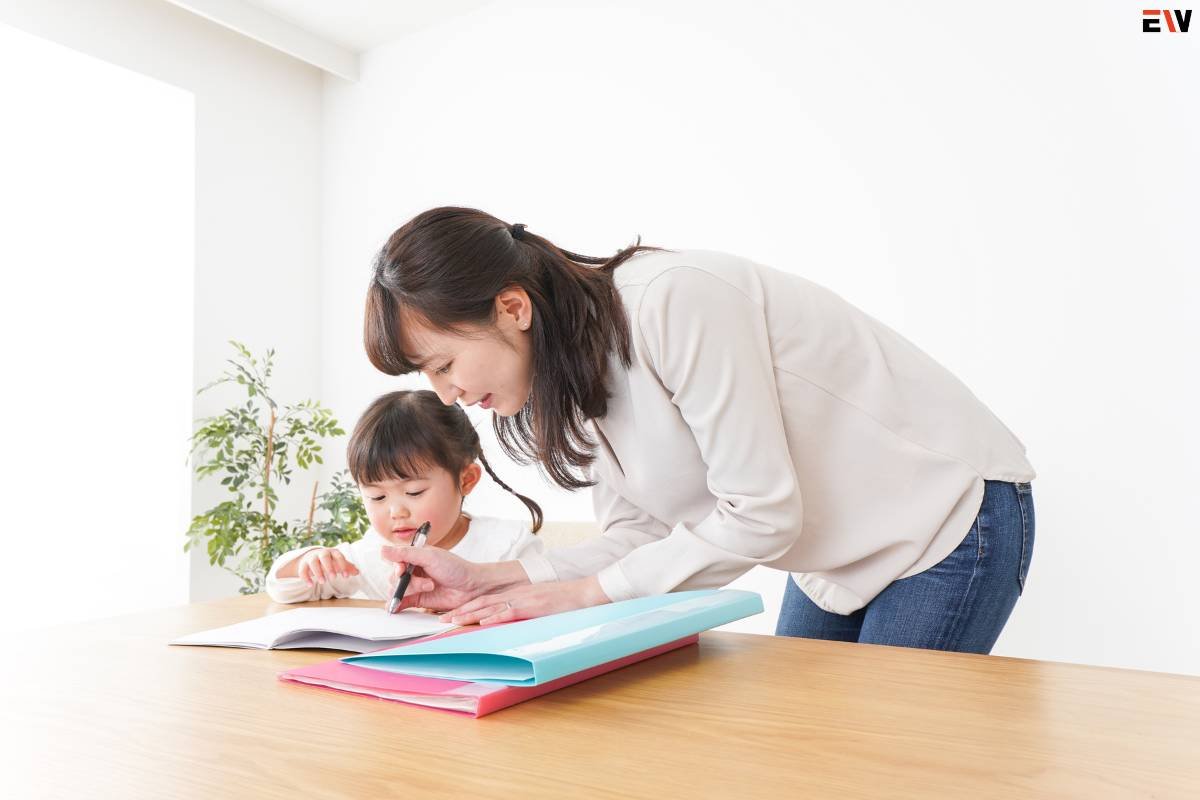The first few years of life are a whirlwind of growth, exploration, and discovery. It’s a time when little minds soak up information like sponges, forming the foundation for future learning, social skills, and emotional well-being. This critical stage is where early childhood education (ECE) steps in, nurturing those tiny seeds of potential into thriving young minds.
More Than Just Daycare: The Magic of Early Childhood Education
ECE is far more than simply babysitting. It’s a carefully crafted environment designed to foster holistic development in children aged from birth to eight. Through play, exploration, and age-appropriate activities, Early Childhood Education programs address all areas of development, including:
- Cognitive Development: Encouraging curiosity, problem-solving, and critical thinking through engaging activities like building blocks, puzzles, and storytelling.
- Social and Emotional Development: Fostering empathy, cooperation, and self-regulation through social interaction, group activities, and emotional literacy lessons.
- Physical Development: Promoting gross and fine motor skills through active play, movement, and creative activities like dancing and arts & crafts.
- Language and Literacy Development: Exposing children to rich language experiences through storytelling, singing, and reading, laying the groundwork for future literacy skills.
The Ripple Effect: Benefits that Last a Lifetime
Investing in quality ECE isn’t just good for children; it benefits society. Studies show children who participate in strong ECE programs:

- Perform better academically: Scoring higher on standardized tests and demonstrating improved reading and math skills.
- Develop stronger social skills: Showing better communication, collaboration, and conflict resolution abilities.
- Have greater emotional well-being: Experiencing reduced rates of anxiety and depression and improved self-esteem.
- With ECE, children are more likely to graduate high school pursue higher education, and contribute more to the economy as productive members of society.
A Tapestry of Options: Choosing the Right ECE Program
With diverse philosophies and approaches, finding the right Early Childhood Education program can feel overwhelming. Here’s a quick guide to some common options:
- Montessori: Emphasizes self-directed learning and exploration in a carefully prepared environment.
- Waldorf: Focuses on imaginative play, natural materials, and artistic expression.
- Reggio Emilia: Values collaboration, inquiry-based learning, and documentation of children’s experiences.
- Play-based: Encourages learning through active exploration and play-based activities.
Beyond the Classroom: Supporting ECE for All
Ensuring quality Early Childhood Education for all children requires a collective effort. Here are some ways to support and advocate for early childhood education:

- Policy Advocacy: Contact your representatives and urge them to prioritize funding for early childhood education programs.
- Volunteer: Donate your time and skills to local ECE programs or mentoring initiatives.
- Community Outreach: Raise awareness about the importance of ECE through educational workshops and public events.
- Support Quality Programs: Choose childcare options prioritizing child development and qualified educators.
1. Bridging the Gap: Addressing Accessibility and Equity in ECE:
- Highlight the disparities in access to quality ECE programs across different socioeconomic backgrounds and communities.
- Advocate for policies and initiatives that promote equal access, such as scholarships, subsidies, and culturally relevant programs.
- Discuss the importance of diverse teaching staff who reflect the communities they serve.
2. The Power of Technology in ECE: Friend or Foe?
- Explore the potential of educational technology in enhancing learning and engagement in the ECE classroom.
- Emphasize the importance of responsible and age-appropriate technology use, focusing on interaction and exploration rather than passive screen time.
- Discuss the need for clear guidelines and ethical considerations for technology integration in early childhood settings.
3. Beyond Academics: Fostering Creativity and Emotional Intelligence in ECE:
- Highlight the important role of arts education, music, and movement in fostering creativity and imagination in young children.
- Discuss the integration of social-emotional learning (SEL) programs to develop self-awareness, empathy, and healthy relationship skills.
- Show how ECE can lay the groundwork for lifelong mental well-being and resilience.
4. Families as Partners: Building Strong Home-School Connections in ECE
- Emphasize the importance of collaboration and communication between educators and families in supporting a child’s holistic development.
- Provide resources and strategies for families to engage in their child’s learning at home, building on what happens in the classroom.
- Discuss the role of ECE programs in supporting families facing challenges, such as those with limited resources or diverse cultural backgrounds.
5. The Future of ECE: Innovation and Emerging Trends
- Explore innovative approaches to ECE, such as nature-based learning, outdoor play, and STEAM (Science, Technology, Engineering, Arts, and Math) education.
- Discuss the potential of personalized learning and technology to tailor education to individual needs and learning styles.
- Look toward the future of ECE, emphasizing the need for ongoing research, professional development, and adaptation to meet the evolving needs of children and society.
6. Measuring Success: Evaluating the Impact of ECE Programs
While the benefits of quality Early Childhood Education are undeniable, understanding its effectiveness requires careful evaluation. Here are some important points to consider:

- Developing clear learning goals and benchmarks: Define specific developmental milestones and indicators of success for children in different age groups within the ECE program.
- Data-driven assessment: Use standardized assessments and observational tools to track individual progress and program effectiveness.
- Focus on holistic development: Look beyond academic achievement and consider measures of social-emotional well-being, physical development, and language skills.
- Collaboration and feedback: Share data and findings with families and stakeholders to ensure program improvement and ongoing development.
- Long-term impact studies: Assess the long-term effects of ECE participation on academic success, career outcomes, and overall well-being.
Investing in early childhood education is an investment in the future. By nurturing the seeds of potential in every child, we cultivate a society that thrives on creativity, collaboration, and lifelong learning. Remember, the impact of ECE echoes far beyond the classroom walls, shaping the lives of generations to come. Remember, this is just a starting point. Feel free to add your insights, examples, and local resources to make this blog more informative and engaging for your readers. Let’s work together to ensure every child has the opportunity to blossom through the magic of early childhood education.










